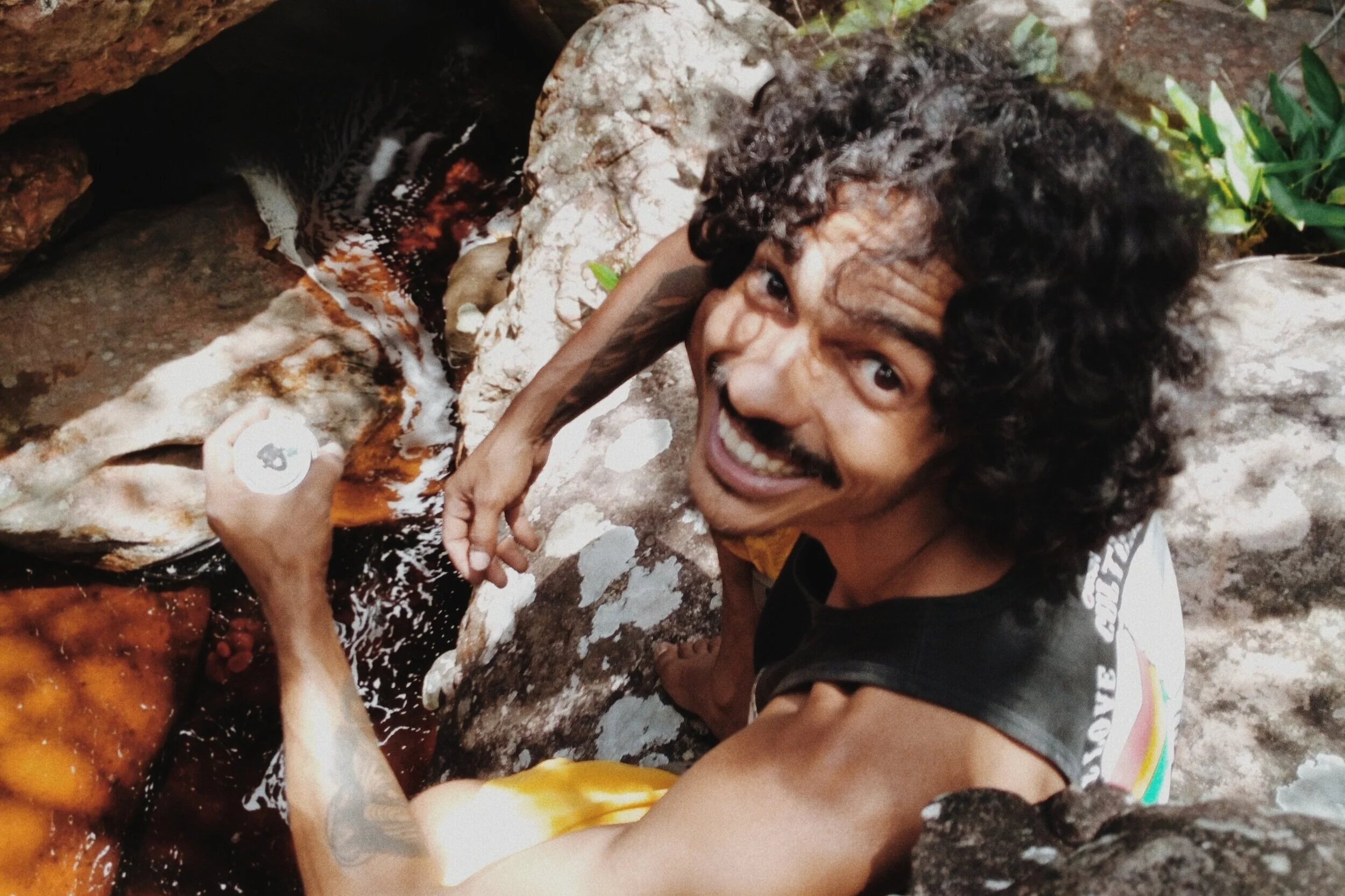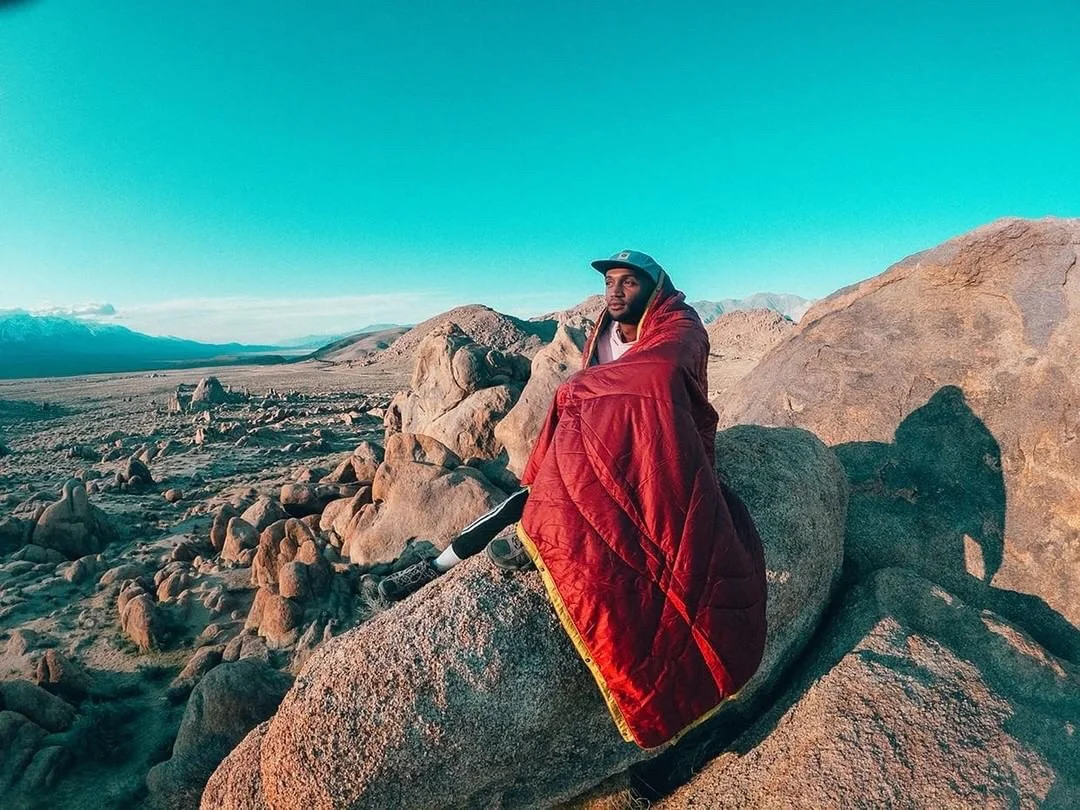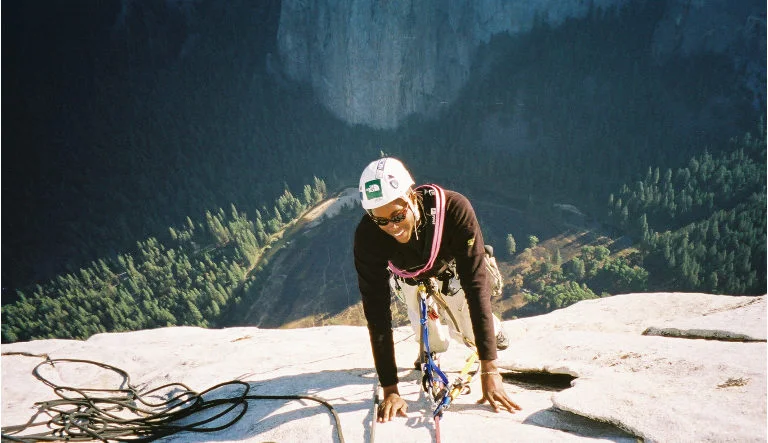How Mountain Project Stole from a Woman of Color & Spent Years Defending Hate Speech in the Climbing Community
Last year, a 29-year-old rock climber and web developer decided to push back against climbing routes with offensive and discriminatory names. Within the North American climbing community, first ascensionists - usually white men - have long had the power to marginalize BIPOC, queer, trans, disabled and womxn climbers by creating route names like Slant Eyes, Lynch Mob, Case of the F*gs, Full R*tard & Tr**ny Swazy.
In January 2020, Melissa Utomo pitched REI for the first time. She met via teleconference with a Senior Program Manager to discuss a climbing website which REI owned, called Mountain Project. Although REI acquired Adventure Projects - which includes Mountain Project - in 2015, it’s been around since the early aughts. It’s a crowd-sourced climbing website that enables users to search for information, upload photos, add comments and discuss related topics.
Melissa's proposal included a well-researched, thoughtfully designed feature that would allow users to flag racist, misogynistic, homophobic, transphobic and ableist route names. It should have been a straightforward collaboration for REI. They had an embarrassing racism problem, and Melissa had a simple solution. Instead, what ensued was a months-long battle against willful corporate ignorance that culminated in June 2020 when Mountain Project stole her intellectual property.
In recent years, Mountain Project has gained notoriety as it transformed into an online hub for bigotry and racist trolls. The website’s refusal to remove incredibly offensive names for climbing routes didn’t help. Individual route names have long been contested by climbers of color with little to no response from Mountain Project admins. Mountain Project, and REI by extension, were more comfortable with protecting the rights of first ascensionists than with envisioning a future where no climber has the power to name a climbing route Black Chicks in Heat.
Melissa realized that trying to argue against one racist route name at a time was not an effective solution. In response, she designed a crowd-sourced approach - a flagging feature that would allow users to flag inappropriate content.
Melissa developed a user-interface with an intentional look and language which she adjusted after paying for a focus group out of her own pocket. Her technical experience as a web developer and UI designer with a background in inclusive design enabled her to create a feature that was user friendly, accessible and anti-racist. She also considered the sensitivity of asking vulnerable communities to publicly call out bigotry and essentially put that data in the hands of corporations. Melissa also just loves climbing and she did this labour for free on top of her full-time job.
Photo courtesy of Kris Haro
In December 2019, prior to her meeting with REI, I received Melissa’s proposal in my inbox. I am a co-founder of a climbing group called BelayALL. At the time, she was socializing her idea with various climbing affinity groups with the hope that broad community support would convince REI that her flagging feature was necessary. I contacted Melissa because I was curious about how this would all unfold. For a lot of folks who have been affected by offensive route names and bigotry within the climbing industry, her design was a clear winner.
Unfortunately, REI felt differently. During the call, she was mocked by two Adventure Projects employees who seemed not to realize that they were on a video call - not voice. Ultimately, Adventure Projects decided to uphold the status quo; route developers, or first ascensionists, would have final say. Meanwhile, the REI Senior Program Manager was far more interested in pushing a separate unrelated project - a diversity initiative - than making the REI owned website safe from hate speech.
Despite this, Melissa accepted an invitation to Outdoor Retailer in late January 2020, where she pitched her proposal for the second time with similar results. The only change was that this time REI asked her to work for free on their diversity initiative. She declined and, ultimately, REI rejected her proposal.
I was in touch with Melissa following this and I knew she was already exhausted from trying to prove why her project was necessary. It was disheartening for me to see, yet again, the way a major outdoor brand preserved its status quo - unchecked hate speech - by refusing to listen to a woman of color. Then in May 2020, REI and Adventure Projects went their separate ways. Melissa tracked down the e-mail of the Adventure Projects founder and CEO, Nick Wilder and scheduled a call for June 20, 2020.
“I told him I had pitched it to REI and dealt with the political merry-go-round for months,” said Melissa. Wilder’s response was to grow defensive and argue that his priority was to - you guessed it! - route developers, or first ascensionists. The same tired argument was once again being used to justify their do-nothing attitude when it came to addressing hate speech on their website.
Wilder added that he didn’t have time right now to implement Melissa’s proposal and that he didn’t want to “open a can of worms,” which is what white people say when they don’t understand that the first principle of anti-racism is dealing with your own fragility. After promising Melissa, that Mountain Project’s new brand partnership would enable him to make changes soon, the call ended.
Days later, Mountain Project stole her idea and released their own version of her flagging feature without paying Melissa or giving her credit. Melissa took to her social media in protest of the blatant theft of her intellectual property. Let’s be clear. Mountain Project did not design that feature, they stole it from a woman of color.
Over the past few weeks, the topic of racist route names has made a resurgence in public discourse because outdoor companies are now feeling the pressure of the Black Lives Matter movement and most are scrambling to virtue-signal that they aren’t racist. With little interest in real change, the results are more mishandled initiatives that harm the very communities who have been doing this work for years.
Andrew Bisharat thought it was appropriate to chime in on the “debate” about route names and wrote an article that was contested so fiercely by communities of color that the man who approved it, Duane Raleigh, apologized before stepping down from his position. In the comments section, you’ll find a clumping of white people who can’t see beyond their own sense of entitlement. White ignorance and white privilege are endemic.
I know for a fact Melissa did not want to be on the front end of this fight, and yet, if you look at her Instagram she has included updates in her highlights on this topic because she knows what happened to her will keep happening if we don’t do anything to address the harm perpetrated by companies that demand womxn of color work for free and steal intellectual property from them.
Her project was designed to help shift something on the back end of this phenomenon - to enact real and lasting change. If enough people flag these discriminatory and offensive route names, and if Mountain Project empowers staff who are trained in anti-racism to take swift action, then maybe, just maybe, it is possible to take a climbing community fashioned in the image of white supremacy and make it more inclusive and safer for all. “We’ve been used to being an afterthought,” said Melissa. “I hope this empowers us to question the norm. Being imaginative and rethinking how the world could work - I guess, what I want to offer is a space to do that.”
We need to protect Melissa right now. This doesn’t mean flooding her inbox with empathetic messages, it means turning the spotlight on Mountain Project and other companies which have long been avoiding transparency and accountability. We need to put the spotlight on companies which claim to do “diversity, equity and inclusion” work while refusing to address hate speech. We need to call out companies that steal from womxn of color while simultaneously refusing to acknowledge the ideas, leadership and expertise of BIPOC. We need to rethink the act of naming or re-naming climbing routes and areas which often erases indigenous history, language and place names.
So many of us do this work because we know change is possible and we’re willing to spend our time and resources towards building a more equitable future. We know that this community can thrive. So we invest in community building, we amplify our own voices and we refuse to buy into the scarcity models of white culture and capitalism.
I want to thank Melissa and, while she rests, ask that you share this story to keep bringing awareness. We can put an end to the theft of our resources and our labour by working together to hold the outdoor industry accountable. Soon enough, it will be clear which CEOs are committed to dismantling the racism within their companies and which are going to continue being willfully ignorant. Head to Melissa’s Instagram and read her posts on this issue, and know that what has shown up on Mountain Project in lieu of Melissa’s work is not intended to help BIPOC feel safe in the climbing world.
Tune in on Thursday, July 9, 2020, for “Erased: A Discussion About Land, Route Names, Mountain Project and the future of climbing culture” with Melissa, Erynne Gilpin and Ashleigh Thompson in conversation with Brown Girls Climb. Register here or through the link in the Brown Girls Climb bio. Suggested donations of $5-$10 will go to the speakers.












As knowledge of the outdoors tends to be handed down generationally, this broken chain has denied today’s black youth the tools they need to be able to tackle the outdoors with any degree of confidence […] we have effectively become an urbanised people.